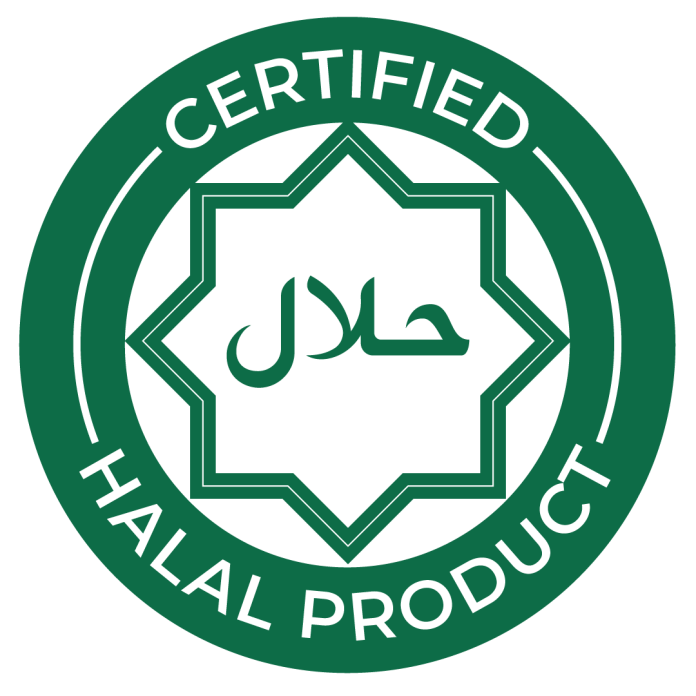Nov. 19: Uttar Pradesh government has banned the sale of Halal-certified products in the entire state with immediate effect as per an order issued on Saturday. The order says Halal certification of food products is a parallel system which creates confusion regarding the quality of food items and is not tenable under Section 89 of the Food Safety and Standards Act.
The government of Uttar Pradesh has banned goods with the Halal label. According to the state administration, it is now illegal to produce, store, distribute, or sell food items that bear the Halal certification. However, it is not applicable to goods made for export.
“Strict legal measures will be implemented against any individual or firm engaged in the production, storage, distribution, buying, and selling of Halal-certified medicines, medical devices, and cosmetics within Uttar Pradesh,” an official order said.
“The right to decide the quality of food items lies only with the authorities and institutions given in Section 29 of the said Act, who check the relevant standards as per the provisions of the Act,” it added.
The order was issued following a police case filed against a company and a few other organisations for allegedly “exploiting people’s religious sentiments” to boost sales by providing “forged” Halal certificates.
The case has been registered against entities such as the Halal India Private Limited, Chennai, Jamiat Ulama-i-Hind Halal Trust Delhi, Halal Council of India Mumbai, Jamiat Ulama Maharashtra and others for allegedly exploiting religious sentiments to boost sales by providing Halal certificates to customers of a specific religion, the UP government said in a statement.
However, Jamiat Ulama-i-Hind Halal Trust, in a press statement issued on Saturday, has clarified on Halal Certification which aims to address and clarify the misconception in light of recent misleading information circulating through various media outlets and an FIR lodged in Hazratgunj, Lucknow, regarding Halal Products and Certification services.
In its clarification, Jamiat said, “At Jamiat Ulama-i-Hind Halal Trust, our certification process aligns with manufacturers’ requirements for both export purposes and domestic distribution in India. The global demand for Halal Certified products is robust, and it’s imperative for Indian companies to obtain such Certification, a fact endorsed by our Ministry of Commerce, Government of India (refer to Ministry of Commerce Trade notification no. 25/2022-23).”
“It is also a matter of choice of individuals and manufacturers preferring to certain certifications for their own satisfaction based upon the credentials which the certifying authorities enjoy. It saves a large number of consumers from using products which they do not want for a variety of reasons and ensures availability of need based products in the market. Those who do not want to use such products are free not to use them,” the press statement said.
“Halal certification stands as a significant economic activity benefiting our nation. It’s not merely a requirement for importing countries but also for tourists visiting India, particularly those seeking Halal-certified products during their stay, as highlighted by the Ministry of Commerce & Industry (No 03/2023 dated 6th of April 2023). We adhere to government regulations, as emphasized in the Ministry of Commerce & Industry notification, requiring all Halal Certification bodies to be registered by NABCB (National Accreditation Board for Certification Bodies under Quality Council of India), a milestone that Jamiat Ulama-i-Hind Halal Trust has achieved,” it added.
“Collaborating closely with APEDA (Agricultural Products Exports Development Authority of India) and Indian embassies worldwide, we actively promote Indian Halal Certified products in global markets. If India needs to export, we need to fulfill these mandatory requirements set by the importing countries. Jamiat Ulama-i-Hind Halal Trust’s Halal Certificates are globally recognized by different governments and authorities all across the world. Authorities situated in countries like Malaysia (JAKIM), Indonesia, Thailand (CICOT), Singapore (MUIS), South Korea (MFDS), Qatar (MoH), UAE (MOIAT, ESMA & EIAC), Saudi Arabia (SFDA), SASO (Saudi Arabia) all GCC countries (GAC) recognized our certificate and we have been accreditation from them. We are a member of the World Halal Food Council,” the release clarified.
“The Halal Certification logo not only aids Halal consumers but also offers informed choices to all consumers. It’s essential to note that all financial transactions are duly accounted for, with proper GST and income tax payments and thorough auditing, ensuring complete legality and transparency in our operations. Certain individuals propagating false claims against Halal Certification directly undermine our national interests. Halal Trade stands as a significant $3.5 trillion industry, and India benefits from its promotion in exports and tourism, particularly with our crucial trade partners in the OIC countries and Southeast Asia,” the statement said.
“In response to baseless allegations aimed at tarnishing our image, Jamiat Ulama-i-Hind Halal Trust will take necessary legal measures to counter such misinformation. Addressing misconceptions surrounding Halal Certification remains pivotal. As evidenced by the Kerala High Court’s observation on the necessity to understand the concept of Halal, we stand committed to clarifying and upholding the integrity of our operations,” the press release issued by Niaz A. Farooqui, CEO, Jamiat Ulama-i-Hind Halal Trust said.




